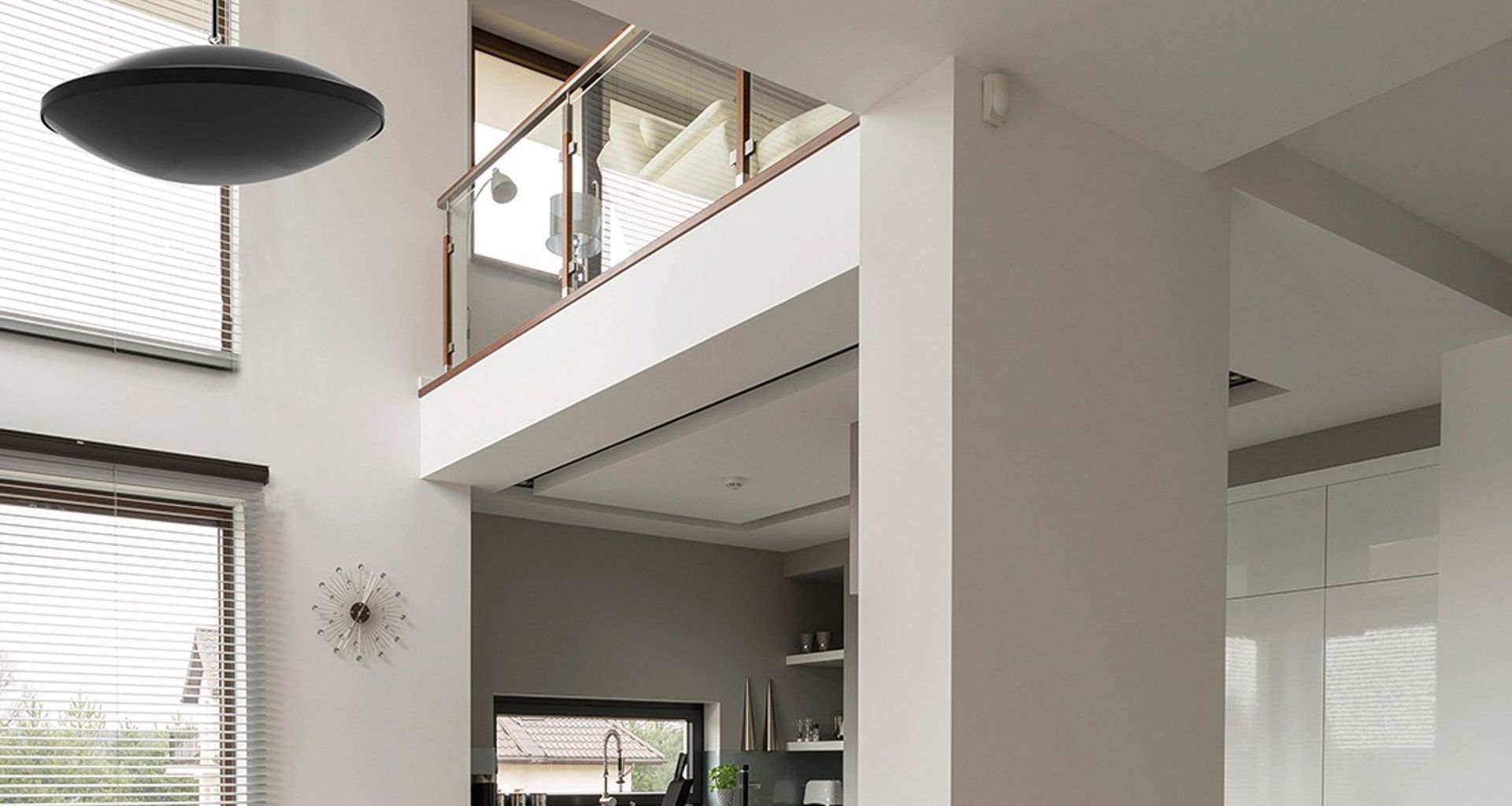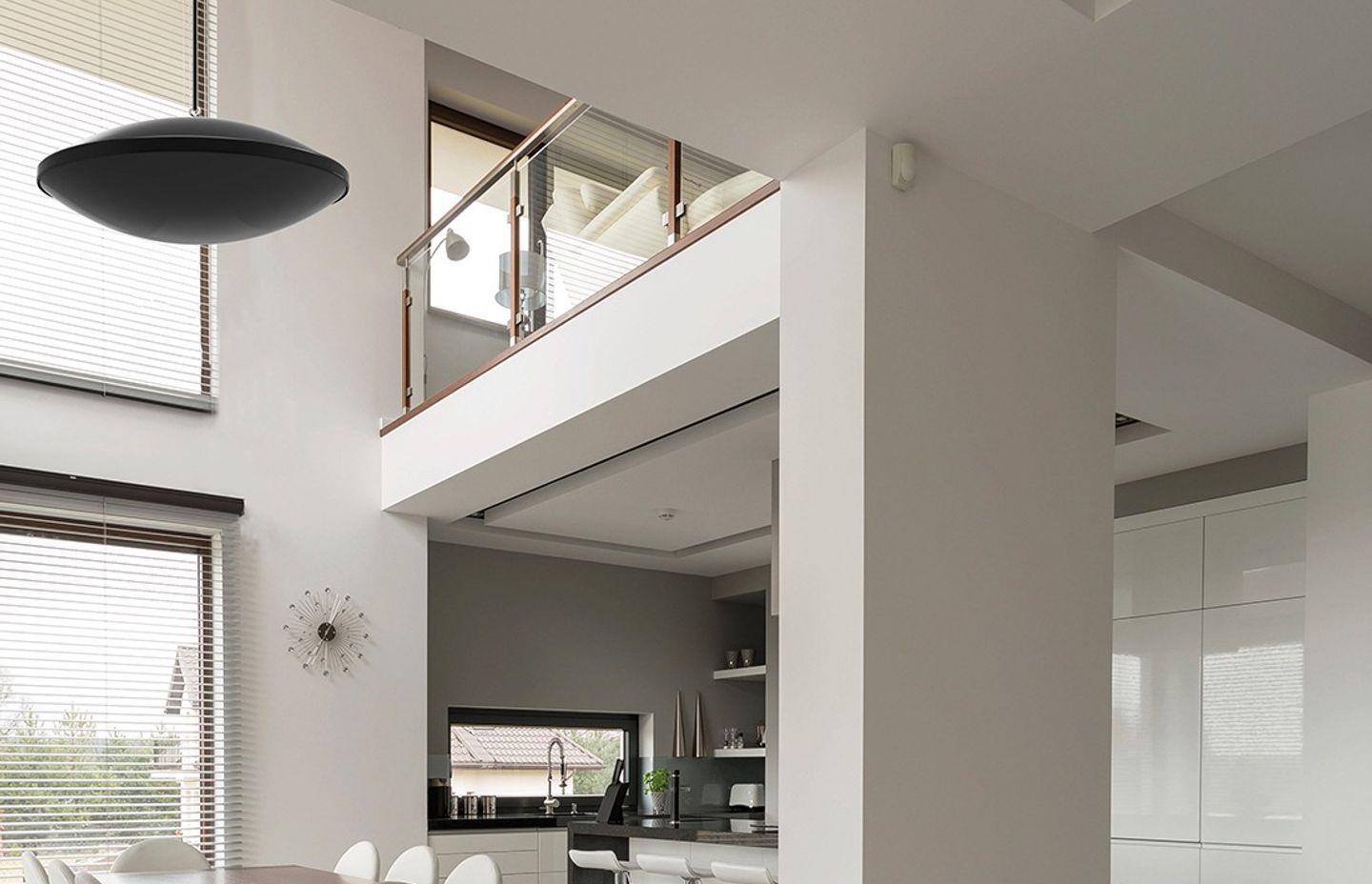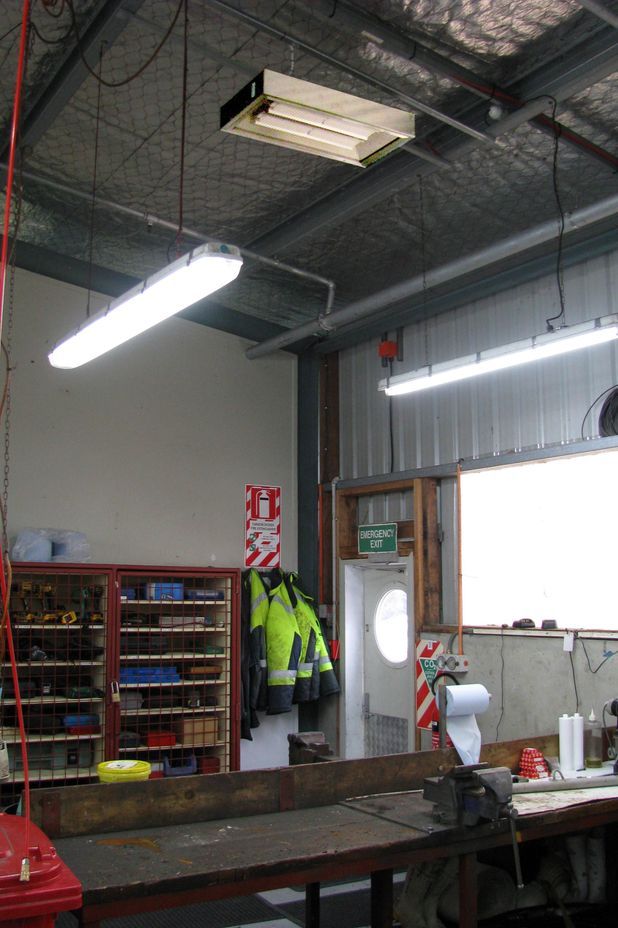The future of heating
Written by
13 August 2017
•
4 min read

Infrared heating is a new technology that is fast taking hold around the globe. That’s because it moves away from heating air, which is a method fraught with issues, allows for zoned areas in large open plan commercial spaces, is as much as 60 per cent cheaper to run, and reduces the spread of airborne germs and allergens.
“Infrared radiant solutions heat the fabric of the room; the people within it, the furniture, the walls, the floors,” Herschel-Infrared’s Mark Coory says. “That means that the whole room and objects within it become part of the heating system.”
This sort of heating is a marked step away from air-based solutions, and one that’s forging a new direction in the way we think about heating. And the heaters aren’t as you might expect; they come in many different forms, from mirrors to artworks and hanging pendants.
“Heating air causes various issues, but most critically, it isn’t an efficient way to heat spaces. Air has a very limited thermal mass itself, which is why, when you turn a heat pump off, for example, a room will feel cold very quickly. It’s the same situation if a door is opened, a cold breeze will cool a room instantly. Because of its lack of thermal mass, when warm air comes into contact with a cold surface, it loses its heat very quickly, without transferring any of that heat to the cool object,” Mark says.
This means that for an air-based system to be effective, it needs to be running most of the time to achieve a sustained temperature – which is not a cost effective or sustainable solution. “Moving air around also aids in the transfer of germs and contagions, which is a huge benefit of this infrared technology; the spread of colds & flue in an office for example, is instantly lessened when air stops being circulated.”
In residential settings particularly, the act of heating air also creates condensation issues because warm air holds a lot of moisture – an issue that leads to the requirement for additional solutions including ventilation systems and dehumidification, in addition to heating.
Infrared heaters provide the unique ability to heat specific parts of a room or space – from in-home areas to defined parts of large, open plan industrial spaces. “This is a real benefit compared to air-based systems because when you heat air it rises and disperses uncontrollably, which is why the whole room space has to be heated with the source working continuously to maintain an ambient temperature,” Mark says.
Infrared, on the other hand, can be precisely zoned. “In industrial applications such as warehouses, zoning becomes a critical energy-saving factor.”
Herschel-Infrared recently installed an infrared solution at an Ingham’s factory within a mechanical workshop area. “Doors were open and the area was freezing. What we achieved was a customised solution with a heating panel that hung overhead, above where the staff work.”
This meant that only the area of the large factory where the staff work was heated. The steel tools they use, the floors, furniture, equipment, and the staff themselves are all heated. “It means that instead of staff having to put on gloves to handle cold tools, the tools are warmed along with other objects near the heaters, and productivity is increased, while cost efficiencies are made by heating a small part of a much larger space.”
Herschel-Infrared has significant cost benefits from both installation costs, and ongoing maintenance. The system is electrically wired only, so is generally quite simple and non-invasive, and there is little or no maintenance required once the system is in place.
If you’re considering implementing a new heating system or would like to utilise the latest technology, get in touch with Herschel-Infrared on ArchiPro here and watch this video to see for yourself how Hershel-Infrared technology works.


